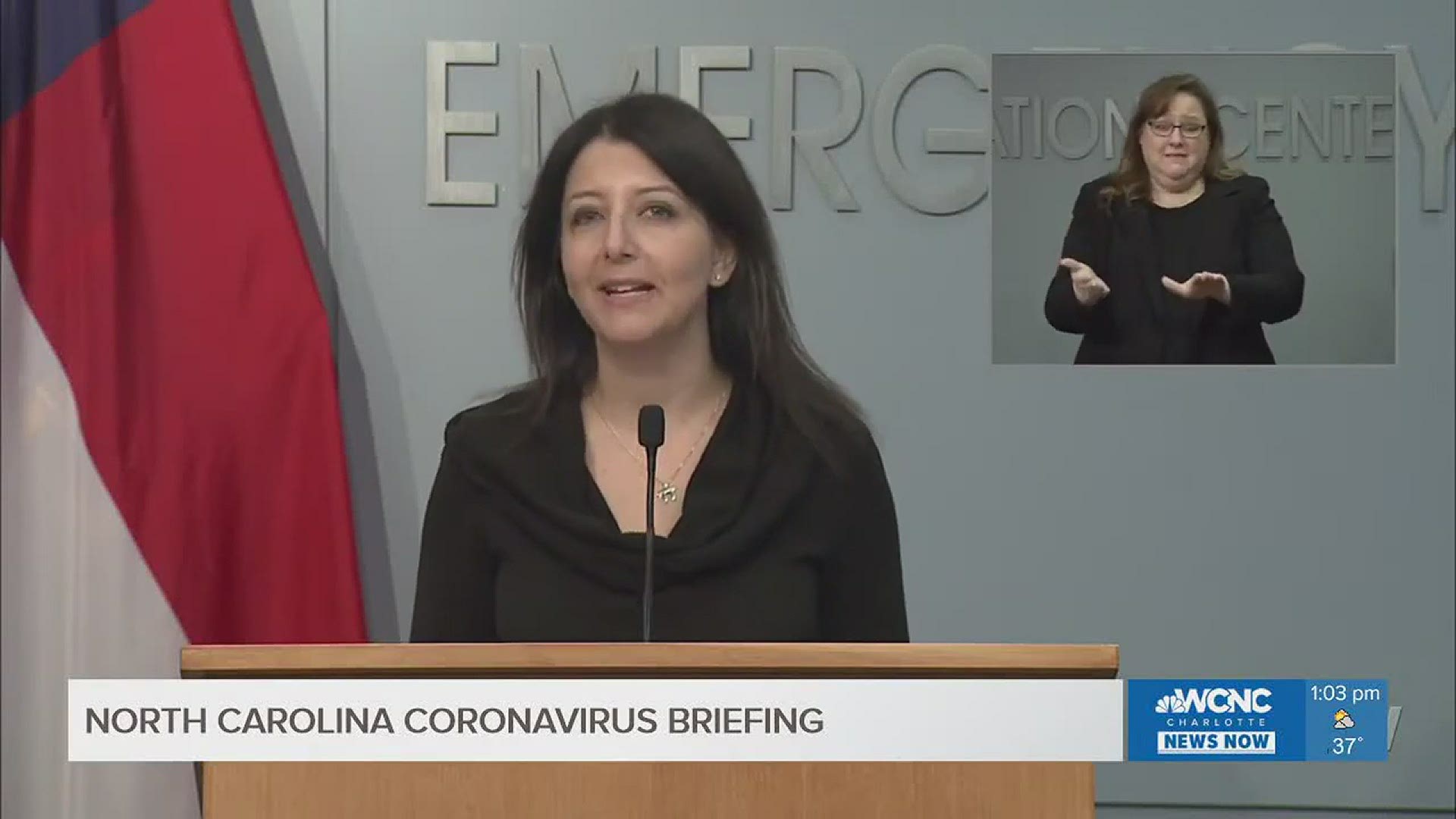CHARLOTTE, N.C. — North Carolina health officials reported another bump in COVID-19 Friday, marking the second straight day with at least 10,000 new cases.
The Department of Health and Human Services (DHHS) reported 10,028 cases on Friday. The two-week positivity rate also climbed to 14%. Hospitalizations linked to the coronavirus remain at record highs with 3,960 people being treated for COVID-19 statewide.
"This is the most worried I've ever been," said Dr. Mandy Cohen, secretary for North Carolina Department of Health and Human Service, during a Friday briefing. "Because of the widespread virus, there's a high risk you have COVID and don't know it."
Gov. Roy Cooper's modified stay-at-home order will be extended for three more weeks starting at 5 p.m. Cohen will also be joined by Mike Sprayberry, director of NC Emergency Management.
"With hospitals feeling the strain and more people sick, there has never been a more important time to take this seriously," Cooper said Wednesday.
Cohen said earlier this week that 96 of the state's 100 counties are in the orange or red zone for community spread of the virus. Cohen said the amount of coronavirus in the state is "alarming."
Nationwide, the virus continues to spread rapidly. The United States recorded more than 4,000 COVID-19 deaths on Thursday, the most coronavirus deaths in a single day since the pandemic began.
The top three highest days of coronavirus deaths in the U.S. have all taken place this week, according to a tally from Johns Hopkins University.
With coronavirus cases rising sharply, the race to vaccine is on.
"Vaccines are safe," Cohen said while trying to demise any public skepticism about the vaccine. "They've been built on years of prior research."
ONLINE TRACKER: Where to receive your coronavirus vaccine in the Carolinas
"It'll take months to vaccinate everyone who wants one," she said.
North Carolina's modified Stay at Home Order requires people to stay at home between the hours of 10 p.m. and 5 a.m. Additionally, many businesses -- restaurants, bars, entertainment venues, personal care businesses, most retail stores, and more -- have capacity limits and will be required to close by 10 p.m. each night.

